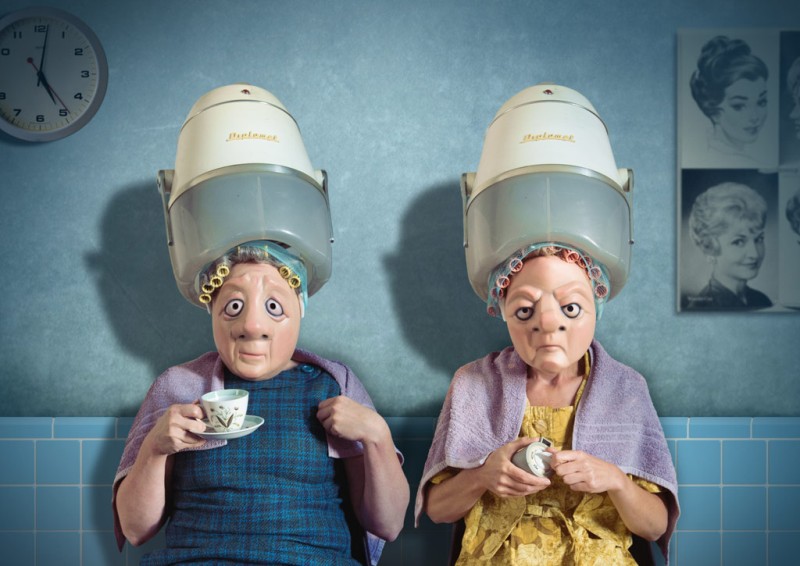 Inspired by the true stories of women in the 1960s forced to give up their children under pressures from the church, family, or community, Vamos Theatre present a visual narrative of one woman’s journey to discover her birth mother, beginning at her funeral.
Inspired by the true stories of women in the 1960s forced to give up their children under pressures from the church, family, or community, Vamos Theatre present a visual narrative of one woman’s journey to discover her birth mother, beginning at her funeral.
An organ laments, an elderly gentleman enters. The stiff back and rigid knees (of Richard J.Fletcher) play the aged body of the accompanying mask with magnificent skill and detail, that continues to be demonstrated by all the performers who multi-role in full mask throughout. Physicality is heightened and powerfully combined with the mask’s exaggerated features to define characteristics that draw personality quickly and acutely. This is a wordless world where movement is what will move us through a very personal narrative.
The tempo of a teenage girl getting ready in her swinging-60s bedroom is juxtaposed with her single father’s drawn-out penny-counting in his dowdy kitchen. A surly waitress waddles heavily across her cafe while her customers fidget, hairdressers cock their heads with clicks of scissors as their clients lazily flick through magazine pages. Director Rachael Savage brings an astute sense of the effectiveness of tensions illustrated through opposing rhythms – the choreography of these scenes plays beautifully. Highlights come in extended sequences of synchronised movement, one of which shows our young mother as she fails to keep up with her colleague’s accelerating typewriter dings; another where she frantically tries to sit still in a hospital birthing room whilst two older mothers plod easily through their labour.
There are many moments of tender humour and a good dose of heartfelt drama, endorsed by Janie Armour’s well-written score that melds musical genres from opera to Lulu. However, much of the meaty drama takes place in the second half and the opening would have benefited from some more dynamic changes of pace to really grab an audience and take us on board. The form of the full mask is used with great skill and successfully abstracts a personal story to make it accessible. I enjoy the physical characterisation but the moments where we push towards a form of masked dance theatre could be taken still further. Big emotions require bold forms and spaces and the set here, for all its fantastically lurid 60s stylings, seemed too clean and closed for the tragedy of the story. This is a touching piece of theatre, and it’s great to see the mask form being used so effectively to share this piece of social history, but it just falls short of fully punching me in the gut with the weight of its emotion.

